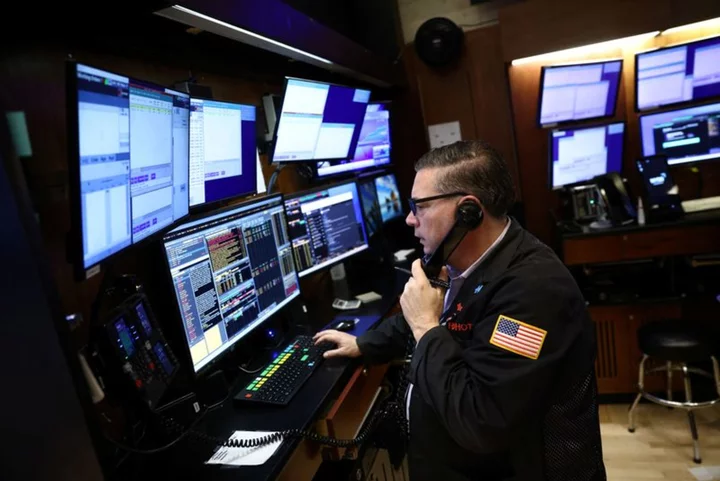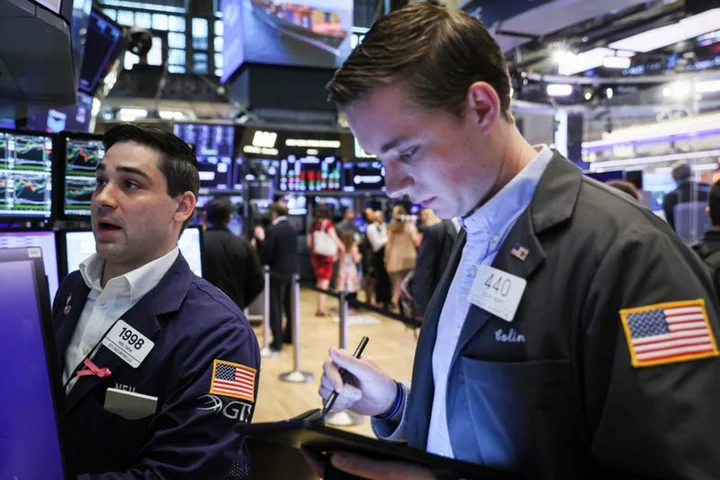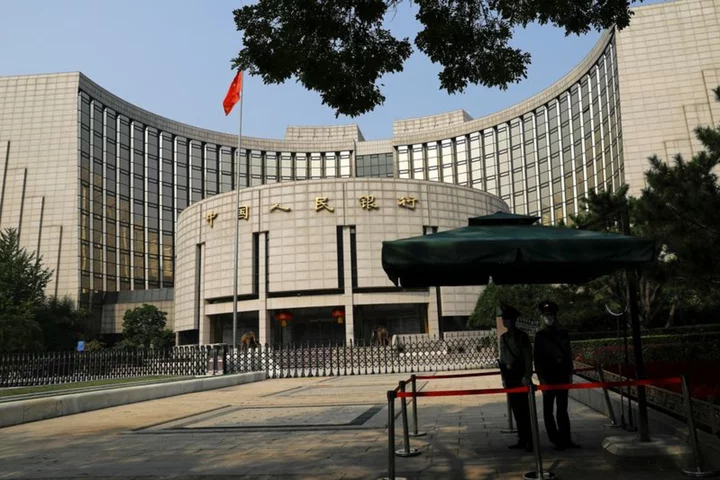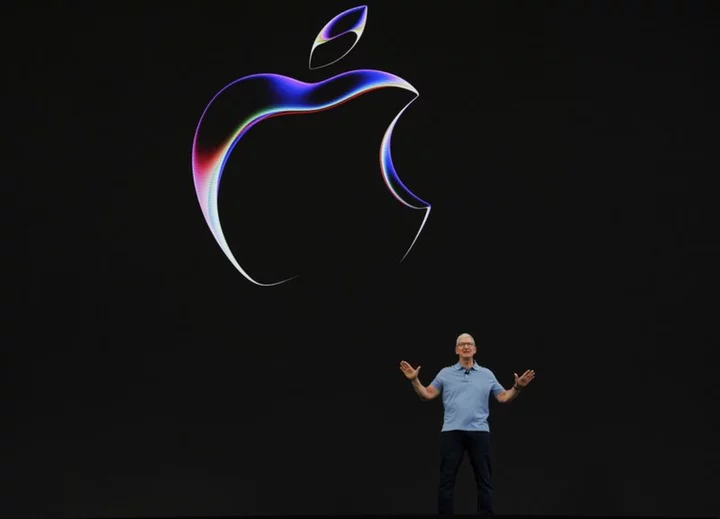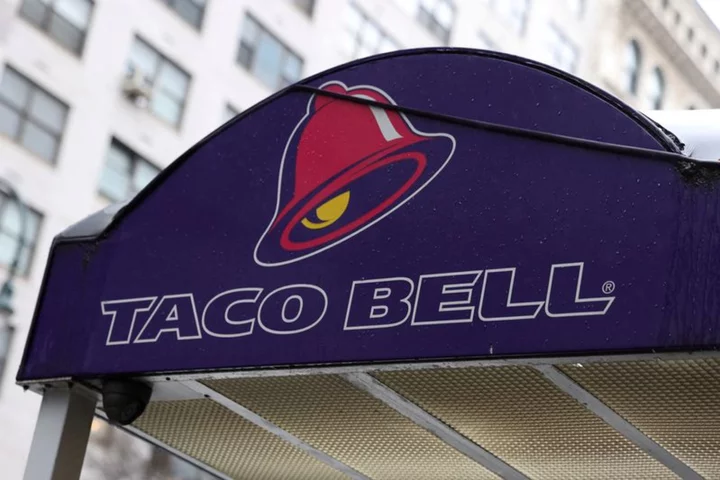By Gertrude Chavez-Dreyfuss
NEW YORK Many bond investors are keeping a defensive stance in managing their portfolios ahead of this week's Federal Reserve policy meeting, as they brace for the end of the monetary policy tightening cycle this year and possible interest rate cuts sometime in 2024.
Investors widely expect the U.S. central bank's policy-setting Federal Open Market Committee will keep its benchmark overnight interest rate steady in the 5.00%-5.25% range at the end of a two-day meeting on Wednesday. The federal funds futures market, however, has factored in a roughly 70% chance of a rate hike at the meeting in July, and about 100 basis points of easing over the next 12 months.
Fed Governors Christopher Waller and Philip Jefferson last month laid out the options for the June 13-14 meeting. Waller said he is concerned about the lack of progress on inflation, and while skipping a rate hike this week may be possible, an end to the hiking campaign isn't likely.
Jefferson said that "skipping a rate hike at a coming meeting would allow the Committee to see more data before making decisions about the extent of additional policy firming."
For fixed-income investors, that uncertainty of not knowing what the Fed will do has made them wary of making big, risky bets, preferring to stick to high-quality assets such as Treasuries and highly-rated investment grade bonds.
"Going into high-quality fixed income specifically on the front end and going into cash, which provides a competing asset class because of the yield you get, are a good safety valve to have, with all the uncertainties popping up," said Rob Daly, director of fixed income and managing director at Glenmede Investment Management.
There are indeed plenty of signs in the economy to be worried about, market players said.
The U.S. labor market, for one, is cooling, with a large drop in household employment and an increase in the unemployment rate in May.
In manufacturing, the Institute for Supply Management's index has been in contraction territory for seven consecutive months. The ISM services index, on the other hand, barely grew in May as new orders slowed.
Scott Anderson, chief economist at Bank of the West, noted at the end of May that models from the Cleveland and New York Fed banks, based largely off the Treasury yield curve, have placed the probability of a U.S. recession at 79% and 71%, respectively, over the next 12 months, a pandemic peak.
"The further the central banks go in raising rates, the greater the risk that when growth and inflation ... finally capitulate, the landing could end up being a lot harder than most are now predicting," Anderson said.
LOOMING MARKET DISLOCATIONS?
Christian Hoffmann, managing director and portfolio manager at Thornburg Investment Management, said market dislocations have been coming on a two-year cycle, noting that 2022 saw the worst year for fixed income in the modern era following the Fed's most aggressive monetary policy tightening since the 1980s.
"We're really focusing on higher-quality situations in the various risk buckets, but this isn't a market where you should avoid risk entirely," Hoffmann said.
"While we are happy to take risk in opportunistic situations, this is still a time for prudence and you don't want to go 'all in' in any situation."
Some bond market participants, however, are preparing for rate cuts next year and unconvinced that another increase in borrowing costs is forthcoming, citing indicators pointing to falling core inflation in the coming months.
Ryan Swift, bond strategist at BCA Research, said leading inflation indicators suggested that the next two months of data on prices could be weak enough for the Fed to pass up hiking rates this week as well as next month.
He recommended lengthening duration, a gauge of the bond's sensitivity to interest rate changes, in portfolios. Going long duration reflects expectations that U.S. yields will fall because the Fed will have to cut rates. As the economy slows, longer-duration fixed-income assets tend to perform well.
"Consider adding some intermediate-term or longer-term bonds to portfolios gradually and stay in higher-credit-quality bonds," said Kathy Jones, chief fixed income strategist at Schwab.
"While it may be tempting to stay in very short-term investments due to risk-free yields at 5% or higher, that opens investors up to reinvestment risk - the risk that they will have to reinvest maturing securities when yields are lower."
(Reporting by Gertrude Chavez-Dreyfuss; Editing by Alden Bentley and Paul Simao)

